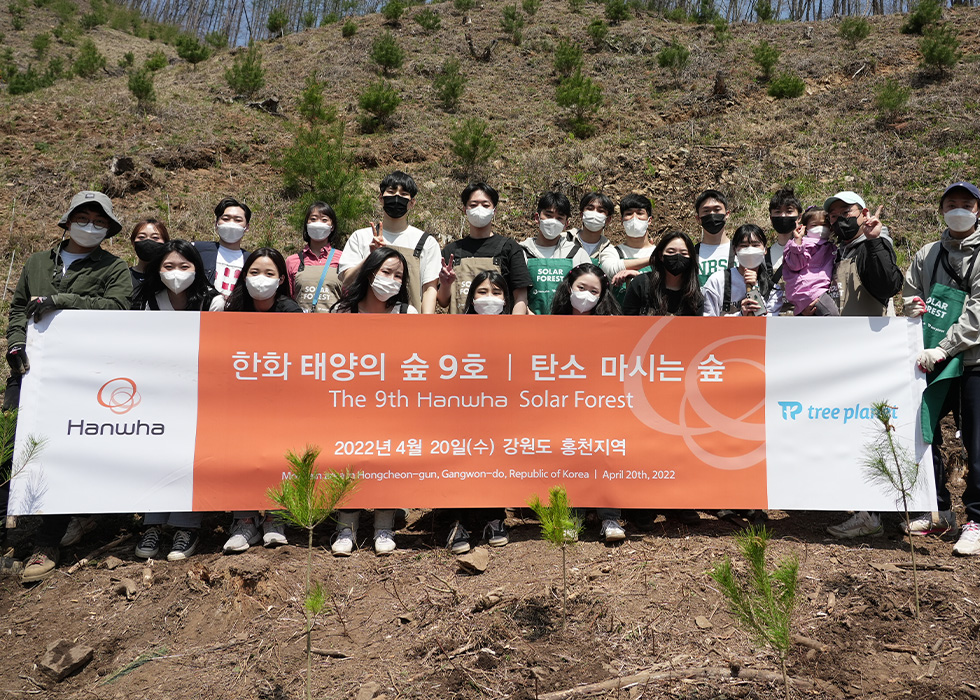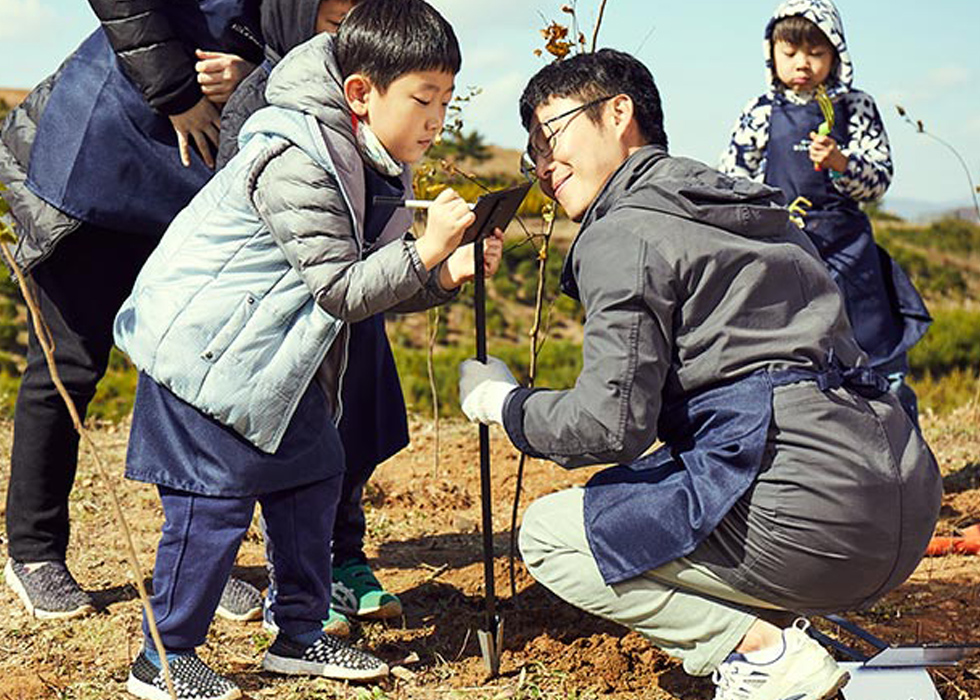Protecting Forests and Empowering Communities: Hanwha Joins WEF's 1t.org

Forests are a true force of nature. They purify the air we breathe, filter the water we drink, and offer a home to the world’s diverse array of plants and animals. The world’s trees also grow strong communities, supporting the livelihoods and cultural practices of groups of people worldwide. But our forests are in trouble. Illegal logging, poor forest management practices, and impacts of the climate crisis are causing widespread deforestation and habitat loss at an alarming rate — equivalent to 27 soccer fields every minute.
Now is the time for companies and individuals to take action and work together to preserve our forests, one of the most essential resources in our fight against climate change and our creation of a better future. Building on its commitment to sustainability, Hanwha pledged to the World Economic Forum (WEF)'s 1t.org and is now expanding its Solar Forest project to support afforestation and reforestation efforts while also working to assist local communities.
By protecting the world’s forests, we can ensure a sustainable future for our planet while still meeting the needs of businesses, consumers, and industries. Keep reading to learn more about how Hanwha and other organizations and safeguarding our forests and communities.
Afforestation & Reforestation: A Path to Recovery
There has never been a more urgent need to revive damaged ecosystems than now. As the effects of climate change become more severe, tree-planting initiatives have gained recognition as key strategies for mitigating its impact. But what exactly are deforestation, afforestation, and reforestation?
Deforestation is the purposeful clearing of forested land. By contrast, afforestation and reforestation improve biodiversity and fight climate change by increasing the total number of trees. Afforestation refers to the process of planting new trees in areas where forests did not exist before, such as deserts, industrial areas, or spaces used for grazing or agriculture. Reforestation, on the other hand, is the replanting of trees in areas where forests have been previously cleared.
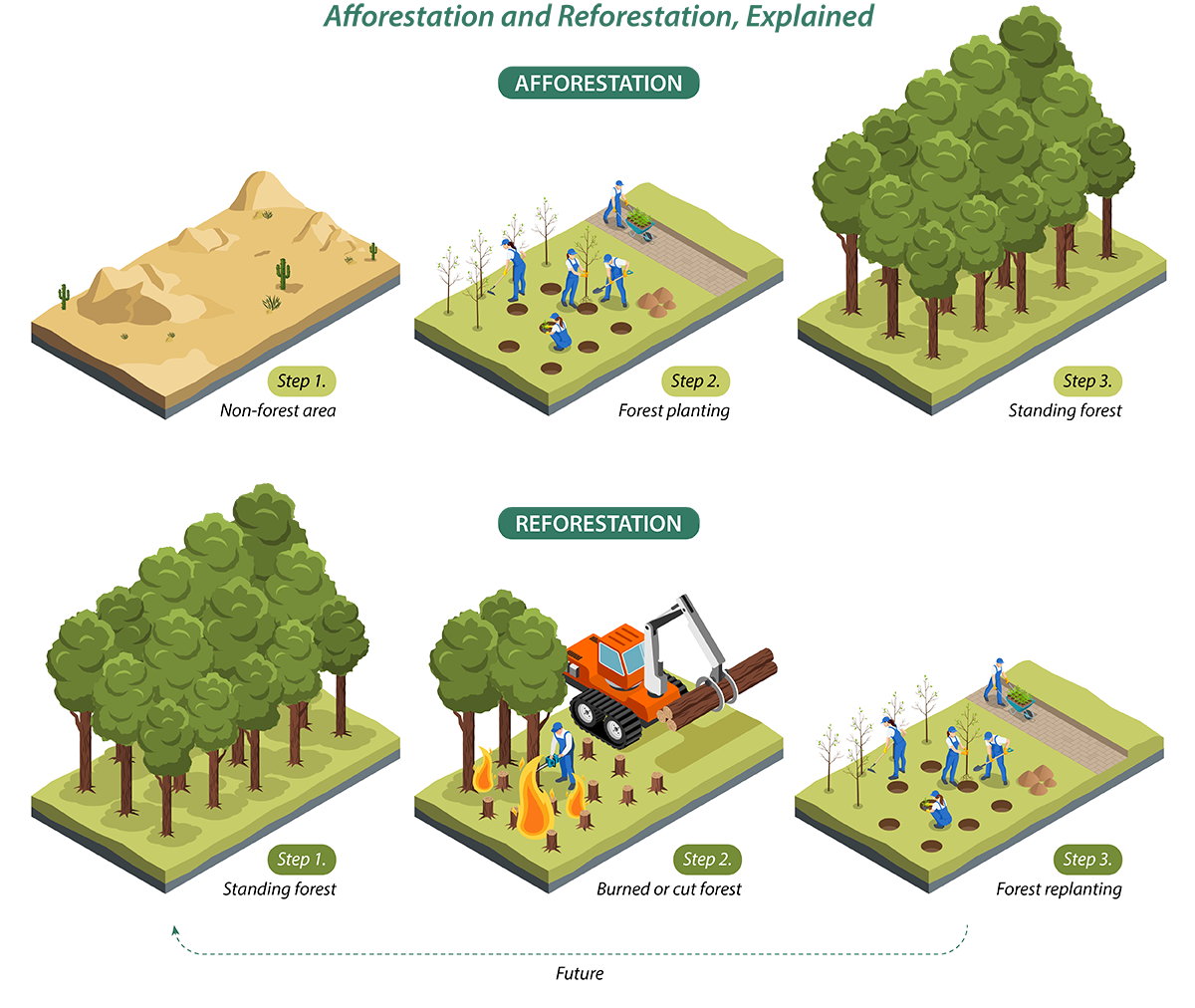
How does deforestation affect the environment? Removing trees from an ecosystem can have significant impacts, such as the loss of biodiversity, increased greenhouse gas emissions, and changes in local and regional climate patterns. For these reasons, it’s important to replace and restore the forests that have been destroyed. Trees are also excellent natural carbon sinks, and planting them can help to reduce carbon dioxide (CO2) levels in the atmosphere. According to the United Nations, afforestation and reforestation are key strategies for restoring degraded ecosystems and combating climate change. That’s why the UN Decade on Ecosystem Restoration (2021-2030) has set ambitious conservation goals under SDG 15 to restore degraded forests and other vital ecosystems.
However, forests are more than just a benefit for the planet — they play a vital role in supporting the culture, livelihoods, and well-being of people around the world.
Healthy Forests, Healthy Communities
The world’s communities are deeply rooted in healthy forests. More than a collection of trees, forests play a crucial role in the economy, providing everything from paper, packaging, and construction materials to food, water, and recreational opportunities. As a result, the loss of forests can have dire consequences, particularly for remote or rural areas that may lack access to basic resources like safe drinking water and wastewater treatment. Rural communities have long benefited from their proximity to forests, which provide a source of revenue through tourism, employment, and outdoor activities. Unfortunately, climate change has begun to disrupt these sources of income, further exacerbating poverty and inequality in these places.
But forests don’t just benefit rural residents. Urban forests, including parks, gardens, and nature preserves, offer crucial benefits to city neighborhoods, such as improved air quality, reduced urban heat islands, and increased opportunities for outdoor recreation. Losing these urban forests can severely impact the health and well-being of urban residents, particularly those who are low-income or are sensitive to heat.
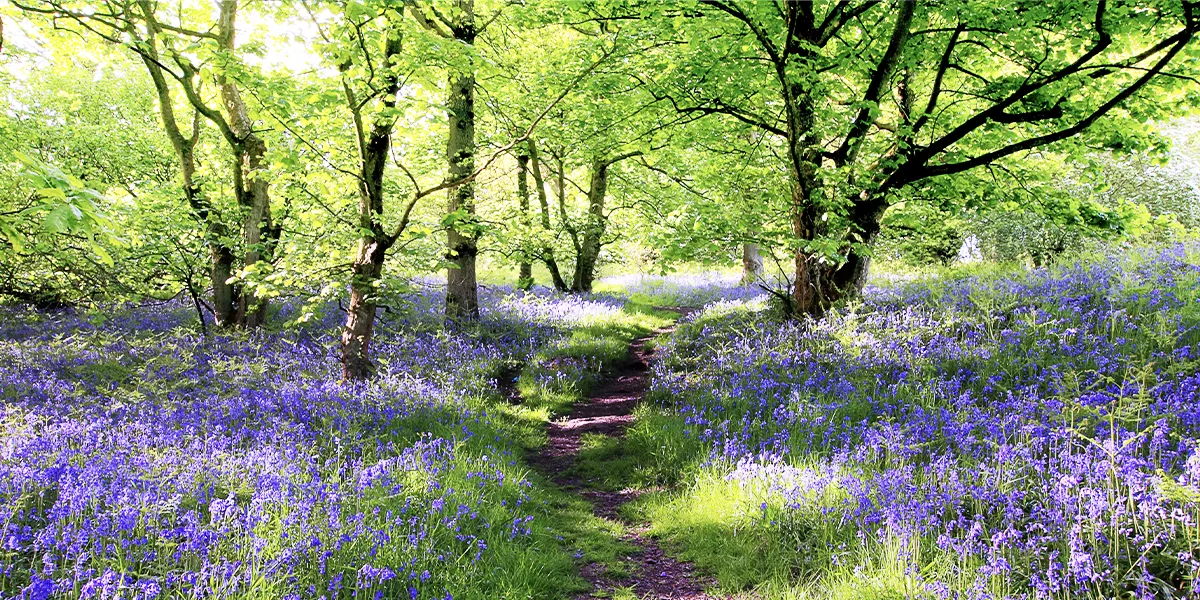
What’s more, many indigenous communities have a deep connection to forests and rely on them for cultural practices and survival. These groups have long been the unsung heroes of forest conservation, establishing land-use agreements and partnerships with governments and conservation organizations while using traditional techniques like controlled burning and selective harvesting to maintain forest health and balance. Healthy forests are the basis for healthy communities, so it’s important for everyone — from individuals to corporations to governments — to come together to address deforestation and protect our planet’s natural resources for future generations of every community.
Conserve, Restore & Grow 1 Trillion Trees by 2030
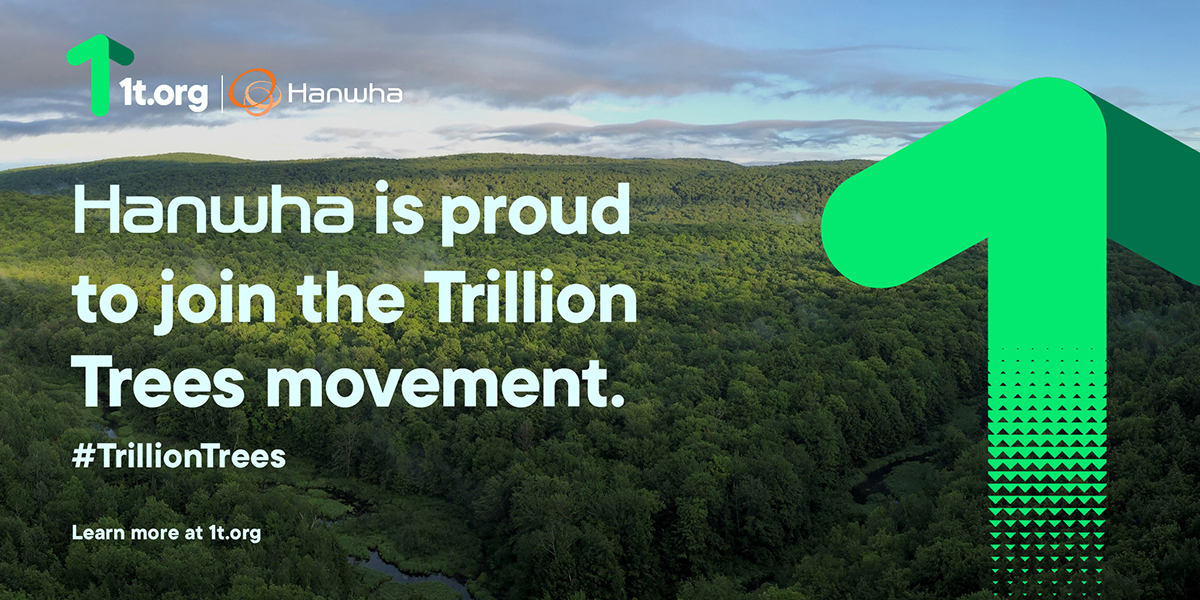
One way that large institutions can play a critical role in combatting the worldwide deforestation crisis and helping support communities is through the WEF’s 1t.org. This ambitious movement aims to conserve, restore, and grow 1 trillion trees by 2030, mobilizing the private sector to commit to reforestation, take action against climate change, and support local communities.
Since the initiative began in 2020, more than 80 companies have pledged to plant upwards of 7 billion trees in over 65 countries. Hanwha is the latest company to make the pledge, aiming to bring about tangible and practical changes for individuals, society, and the planet, paving the way to a greener tomorrow.
As a prominent global solar energy leader, Hanwha has been working towards creating sustainable forests for more than 12 years. Now, the company is taking a step forward by joining the 1t.org initiative. Through Hanwha Solar Forest, the company’s ongoing global effort combining afforestation, reforestation, and green energy, Hanwha pledges to create 20 Solar Forests locally and globally by 2030, supported by 1t.org and its partners.
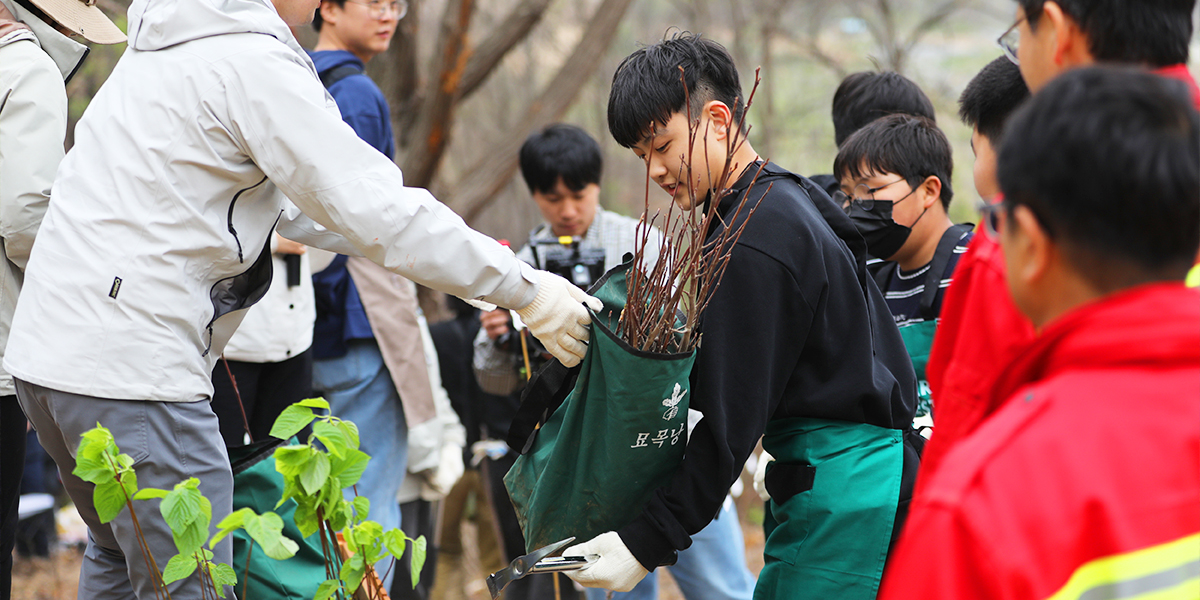
A boy takes a sapling to plant in the 10th Solar Forest in Bongwha, South Korea in April 2023
Since 2011, Hanwha has planted more than 540,000 trees across 1.45 million square meters throughout South Korea, China, and Mongolia. The entire process of growing seedlings for the Solar Forests is carbon-free thanks to the use of solar power, which replaces the fossil fuels traditionally used to power the electricity in sapling nurseries.
Recently, Hanwha brought hope to a region devastated by a wildfire by launching its 10th Hanwha Solar Forest in Bongwha, South Korea, planting approximately 7,000 native flowering trees, including wild pear, mulberry, dogwood, and more. This new forest is not only expected to absorb 64,800 kilograms of carbon dioxide annually but also provide a source of pride and restoration for the community. "As the trees grow, they will produce a lot of flowers and honey. The bees that seek out these flowering trees will significantly benefit the apple farmers in this area," said Nam Chun-hee, an exhibition planner at Bongwha's Baekdudaegan National Arboretum who participated in the Solar Forest planting effort.
Breathing Life into the Planet
In a world increasingly impacted by climate change, forests, trees, and green spaces stand out as essential to maintaining a healthy planet and healthy life for all. Forests provide communities all over the world with clean air, clean water, and countless other benefits that are often taken for granted. Due to deforestation and habitat loss, protecting and restoring these vital resources is now more important than ever. By coming together to support afforestation, reforestation, and other initiatives like 1t.org and the Solar Forests, Hanwha, alongside other global organizations, can create a brighter, more sustainable future for ourselves and for generations to come.
Get the latest news about Hanwha, right in your inbox.
Fields marked with * are mandatory.
- Non-employee
- Employee


